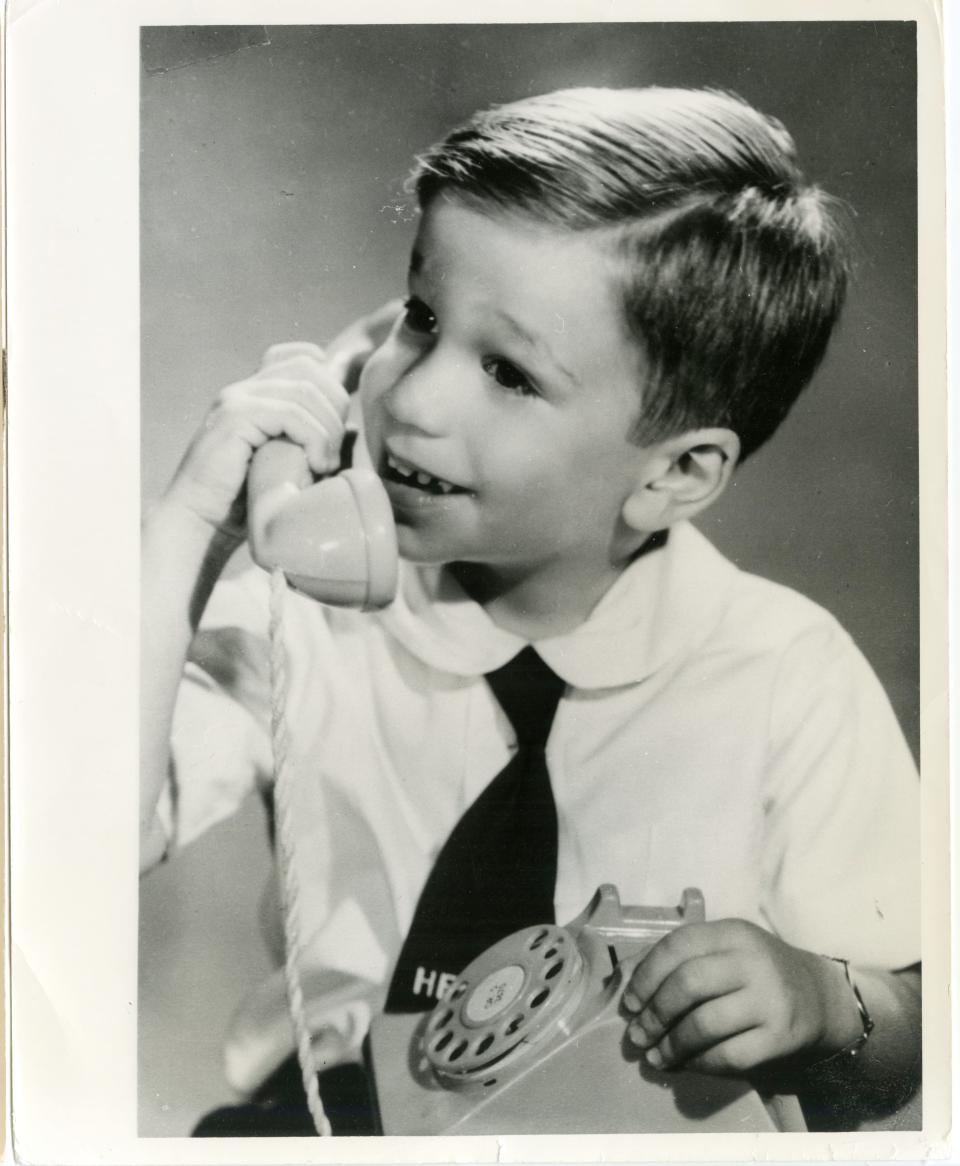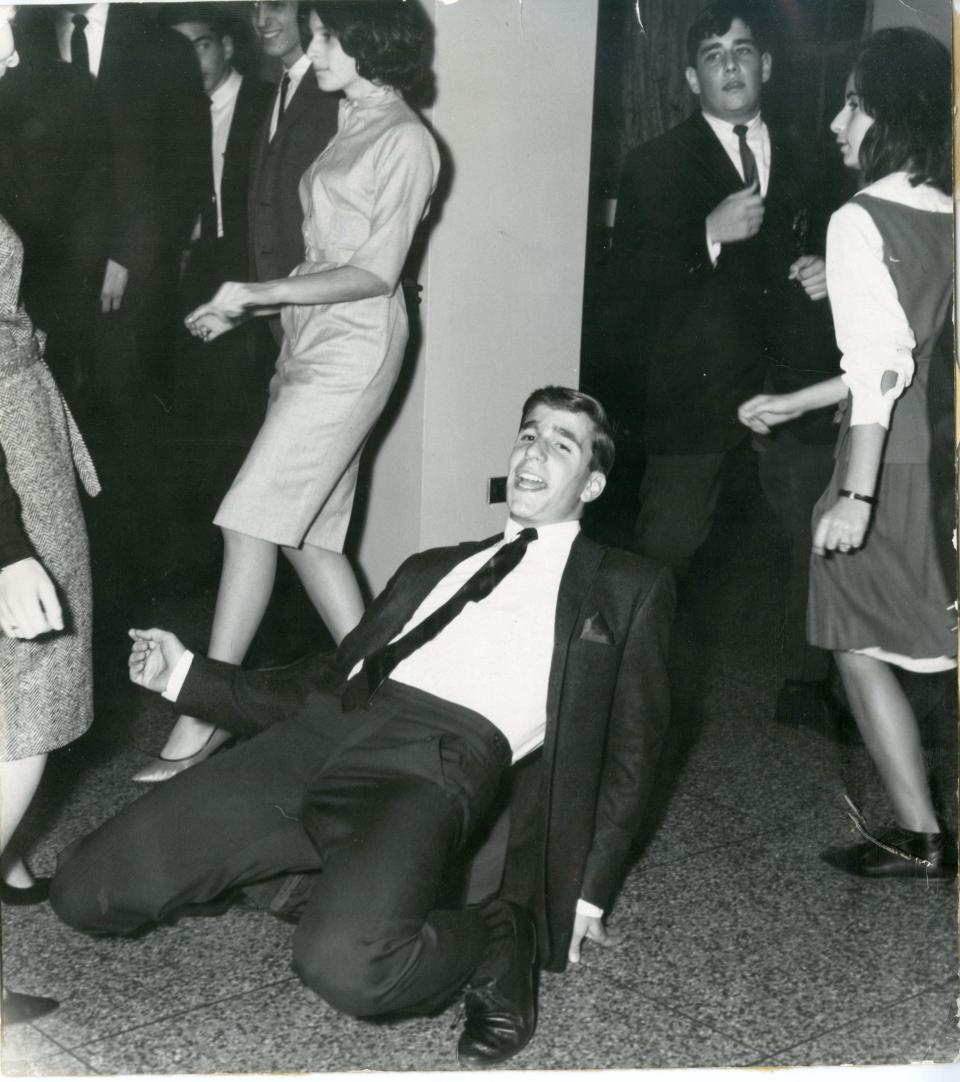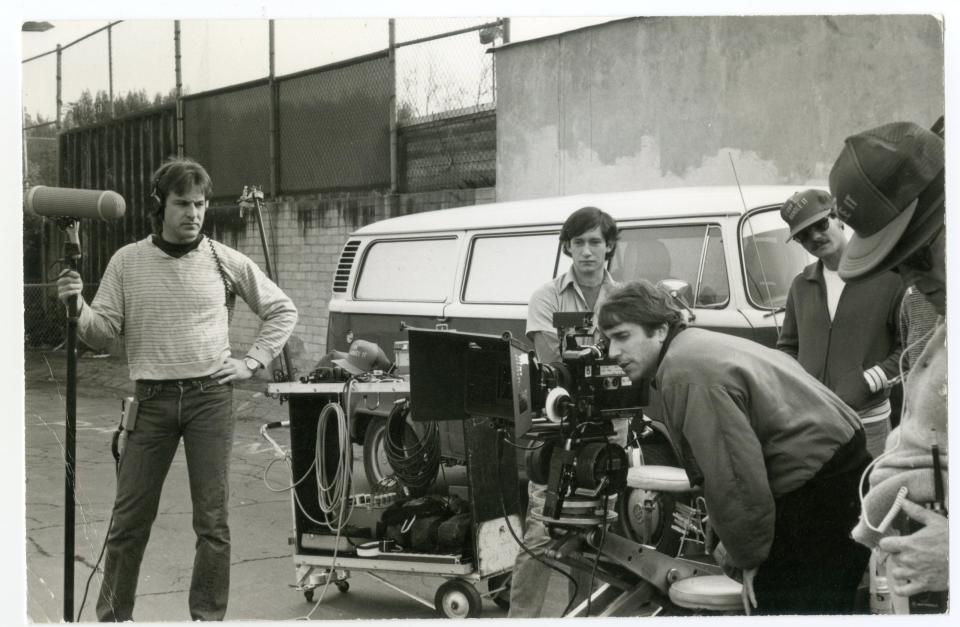Q&A: Henry Winkler talks Fonzie, dyslexia, new book ahead of Nov. 8 Columbus appearance
- Oops!Something went wrong.Please try again later.
- Oops!Something went wrong.Please try again later.
With his trademark "Ayyy!" and James Dean swagger, Arthur "Fonzie" Fonzarelli — aka The Fonz — thumbs-upped his way into America's living rooms and hearts on the long-running sitcom "Happy Days."
Appearing as a recurring character when the show premiered on Jan. 15, 1974, The Fonz was so enormously well-received by viewers that by the second season, he was a main character — and Henry Winkler, just shy of 29, was a bona fide star.
But the price of popularity ultimately proved steep. When "Happy Days" ended in 1984, Winkler found himself in a professional drought because of typecasting. "I had debilitating psychic pain because I didn't know what to do," the now-78-year-old actor said during a recent phone conversation.
What he did was fall back on something he'd had since childhood: will and determination.
Winkler did a fair amount of executive producing for TV and film, and in 1985, his Fair Dinkum Productions company introduced a science-minded secret agent (and subject of future memes) capable of inventing anything from random nearby materials. Named after its title character, "MacGyver" was a sleeper hit that ran for seven seasons.
His career picked back up, and except for a lull in the 2000s, Winkler has worked steadily, both onstage and in front of the camera. He's appeared in films including Wes Craven's "Scream" and several Adam Sandler ventures, as well as TV shows such as "Arrested Development," "Parks and Recreation," "Royal Pains" and most recently MAX's "Barry," for which he was awarded his first Primetime Emmy.
Happier days: Henry Winkler: From Fonzie to 'Barry' (and finally, an Emmy)
In between, Winkler has written numerous books including the "Hank Zipzer" children's series, and two memoirs, the latest of which, "Being Henry: The Fonz ... and Beyond," will bring him to Columbus for a conversation with Pulitzer-winning journalist and USA Today columnist Connie Schultz on Nov. 8.
The Dispatch spoke recently with Winkler about his new book, his childhood, his career and more. Here, we offer a revealing look at the man beyond the leather jacket.

Question: For people who equate you with The Fonz, what surprises them most when they meet Henry?
Henry Winkler: I meet people and they're surprised by my voice. Cher called me up years ago because at that time, she would have roller skating parties. She said, "Can I talk to Henry?" I said, "This is Henry," and she said, "But you don't sound like The Fonz!" I was too scared to go to her party, by the way!
The other misconception is my height. (Winkler is 5-foot-6.) We were in Dallas, which is the microcosm of everything, and somebody said, "You're so short!" I turned around and said in Fonzie's voice, "(Expletive) you, I'm not short!" and the guy said, "You're so cool!"
Q. Fonzie was the epitome of cool. What does Henry Winkler consider cool?
Winkler: The definition of cool is being authentic. If you are your authentic self, it is dynamic!
Q. Your body of work goes beyond 'Happy Days' to other popular TV shows, books, movies and now 'Barry' on MAX. How does it feel to have such broad appeal?
Winkler: When I go to a comic-con and see all the people waiting in line, or someone says, "I loved you in 'The Waterboy,'" "I love you in 'Barry'" or "I love your children's books," it's like a compliment beyond compliment!
Bye-bye 'Barry': Henry Winkler mourns 'Barry' ending, but doesn't want MAX series to jump the shark
Q. Speaking of children's books, what led you into that realm?
Winkler: It was a time-filler. I could not get hired as an actor in the 2000s, and so friend of mine said, "Why don't you write a children's book?" I said, "I can't do that! That's crazy!"
Q. Yet your 'Hank Zipzer' books have been successful, as was your first memoir, 'The Other Side of Henry Winkler,' which I read when I was 12. What inspired you to continue your story almost 50 years later?
Winkler: My son Max said for years because I wrote all these children's books, "Dad, you should write your story. You've got all these great stories!" I felt 'less than' because of my dyslexia and he said, "You can do it!" So I said to my agent, who's one tough cookie, "Max keeps telling me I should write a book." She called me back with a deal! I met a man named James Kaplan, I added the characters and humor, and he got my voice. My wife edited it, we took some of her notes and rewrote some of it again and so on.

Q. In 'Being Henry,' you share a heartbreaking story of how your parents nicknamed you 'dummer hund' ('dumb dog') as a kid. How did that impact your self-image and how did you move beyond it?
Winkler: My parents — which I understand now — were like so many others: The child is the extension of the parent and you better make them look good. I used my humor and charm, everything except getting passing grades in school, which made them insane. "You're being lazy," or "You're too verbal." When you kid around with a child, they believe it, so for the longest time, I thought I was stupid.
How I moved past it was therapy. The first question the therapist asked me about eight years ago was, "Where are you in all this? Where is the 'you?' You keep talking about other people and how they perceive you. Where are you and what you want?" That was not part of my internal conversation. I did not think I deserved what I wanted. I was "dummer hund."
Q. You found out you had dyslexia late in life - in your mid-30s. How did it help you to have a diagnosis?
Winkler: I actually self-diagnosed as I listened to what they said about my son in third grade — he has dyslexia. I thought, "Oh, my God, I'm not stupid." At first, I was pissed off. I was so angry about all the punishment and shame. I couldn't do anything about it; it was in my DNA. The people who punished me gave it to me! But it gave me tenacity for fighting through this challenge and making it work. Otherwise, I'd be in a little room somewhere on the west side of New York. Now I see it as something beneficial.
Q. How did dyslexia impact you in an industry reliant on reading scripts?
Winkler: I've always wanted to be an actor. I love what I do today with the same passion as in 1973. Part of my learning challenge is that I can't read very well, especially off the page. I have learned to improvise; that has mostly put me in good stead.
Spoiler alert!: Henry Winkler breaks down final 'Barry' moments
Q. I heard your voice in a radio commercial saying you’ve partnered with Apellis Pharmaceuticals to educate people about eye disease. Why is this campaign important to you?
Winkler: My father-in-law was a wonderful man and he loved me — he was so different from my father. He was also my dentist and I loved him and trusted him. As his eyesight began to deteriorate, he had to close his office, and he couldn't even see his grandchildren. We found out it was age-related macular degeneration, which can progress into geographic atrophy or GA. It's unstoppable and irreversible. (Apellis) wanted me to be the spokesperson and tell everyone, "Have your eyes checked."
Q. You and your wife, Stacey, have been married for 45 years. What is your key to a long, happy marriage, especially as a person in the entertainment industry?
Winkler: One of the keys is will. One of them is respect. One of them is the ear. The ear is the center of relationships, not the heart and not the head — it's listening.
Q. Are there any roles you passed on that you wish you'd taken?
Winkler: No, because if I was supposed to have done it, I would have done it!

Q. If you could guest-star on any current TV show, what would it be?
Winkler: Oooh, good question! I would have to say there are so many. “Bad Sisters" — you would love it. It is literate and funny and compelling. It’s on Apple TV. And “1883” on Paramount+. I love television!
Q. You minored in child psychology in college. Was that your Plan B if acting didn't pan out?
Winkler: If I didn't make it as an actor — and of course, I was completely sure I would not — I would work with children and make sure their self-images were as strong and straight as could be, and not bent to the left.
Q. What advice would you give young people experiencing the anxiety and insecurity that plagued you for many years?
Winkler: First, believe in yourself and never give up. It is your responsibility to work at that. The other part of that circle is figuring it out, whether that's by talking to someone or reading something, and being aware of when you are drifting into Jell-O. It is your job to work on that part of yourself.
At a glance
Presented by Thurber House, Henry Winkler will appear in conversation with Pulitzer Prize-winning journalist Connie Schultz at 7 p.m. Nov. 8 at Mershon Auditorium, 1871 N. High St. Tickets are $75 for the general public at thurberhouse.org; To order tickets by phone, call the Wexner Center for the Arts at 614-292-3535.
This article originally appeared on The Columbus Dispatch: 'The Fonz' actor Henry Winkler coming to Mershon Auditorium on Nov. 8

